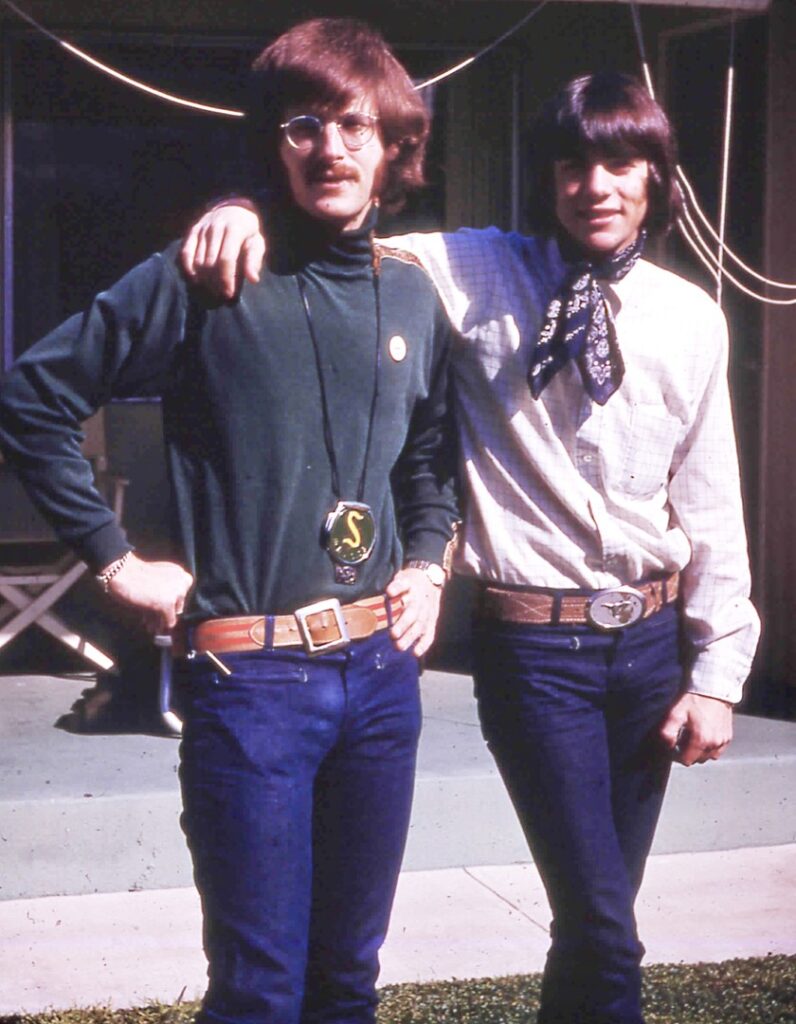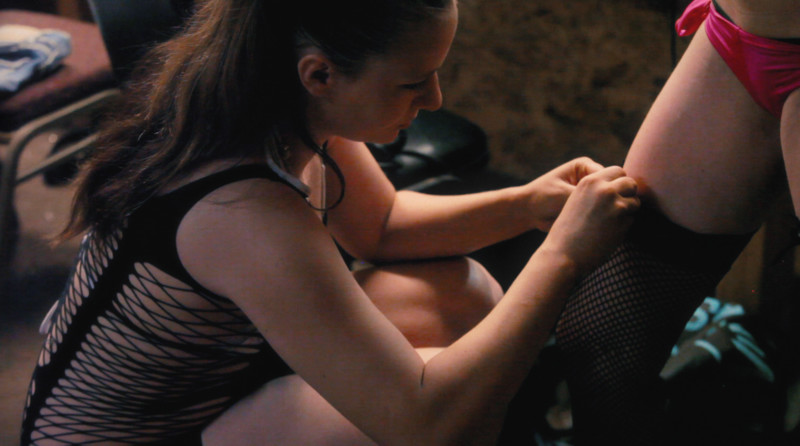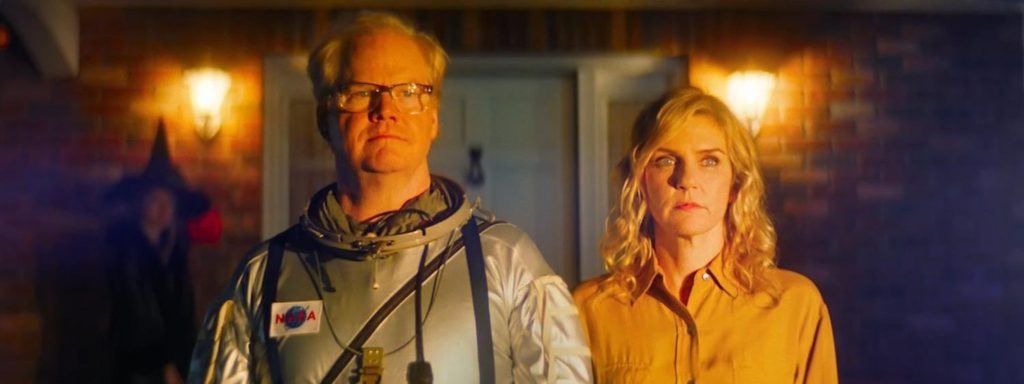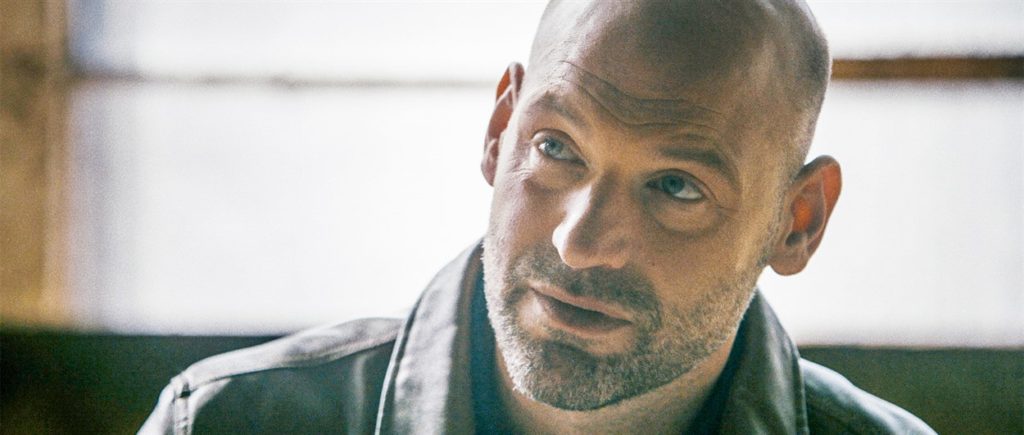
In the very funny sci fi think-piece Share?, an unnamed Everyman (Melvin Gregg) finds himself locked up in his civvies in a high tech cell – and he’s on camera. Through trial and error, he learns that he can acquire necessities – and also on-screen social interaction with other captives – by performing for the camera; the currency is not unlike the likes and follows of social media. There are many layers of metaphor in this exploration of human behavior and the human appetite for bread and circuses.
Our protagonist is able to connect through his screen with others in his situation. One veteran (a great Bradley Whitford) is jaded and burnt out, sometimes a sage life coach and sometimes bursting into a nihilistic frenzy. Another noobie (Alice Braga) is a brilliant, driven strategist who immediately turns to organizing their escape; she proves that rage and fear are clearly the most effective motivators of human behavior (Fox News essentially runs on this fuel), but is the trade off in mental health worth it? A third star of the computer screen (Danielle Campbell) advocates for complacent acceptance and exudes a creepy serenity.
So, how about our current addiction to social media? Is it all one big Distraction that steers us away from addressing real challenges, like injustice, socioeconomic inequality and planetary survival? It’s great to see sci fi that is once again about ideas, not just about blowing shit up in space.
One of the wry ironies in Share? is that the force that is sufficiently technologically advanced to have captured these people without their knowledge and imprisoned them in high tech cells employs a clunky user interface that resembles (and may even be) MS-DOS.
Here’s a novelty – all of Share? is entirely shot from one static camera position. As convenient as this must have been in working from a low budget and perhaps pandemic-driven restrictions, it figures to pose a challenge in keeping the audience interested. But, thanks to the collaboration between director Ira Rosensweig, Assistant Editor Peter Szijarto and Gregg (who’s on screen 99% of the time), that’s not a problem.
Melvin Gregg, with his energy and relatability, does an excellent job carrying the movie. The rest of the cast – Bradley Whitford, Alice Braga, Danielle Campbell – is great, too.
Share? is the first feature for director and co-writer Ira Rosensweig and the third feature for co-writer Benjamin Sutor. Cinequest’s online festival Cinejoy is hosting the world premiere of Share?, which tops my Best of Cinejoy recommendations. You can find the trailer and tickets at Cinequest.










